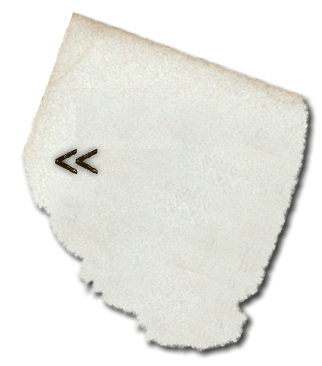Dear Ms. Brimhall,
Before reading your book of poetry Our Lady of the Ruins, I had no idea a world could be crafted out of melancholy. After devouring every drop of sadness within the forty-four poems that comprise your book, I learned that you could, and had, created a world out of woes and I was enraptured by it.
Just like the priest from “Come Trembling” who “pulls a rope/ of thorns through his tongue to make his mind/ pure enough for a vision,” I too find myself driven toward flagellation, though of a less grandiose fashion. Whether I am scraping the wax off my ear drums with the screech of distorted guitars, biking until my muscles and back ache, or reading the most uncomfortable scenes from the most uncomfortable books over and over again, I too seek enlightenment at the hazard of personal comfort. Many times I feel as if, like the characters in your book, I am on a self-sacrificial hunt, and that bond made the failures and discoveries found through their journey the more profound to me.
After I read “Prelude to a Revolution,” for example, it wasn’t just the image of the burning man staring at the moths circling him that I carried out into the world, but the subtext: the wisdom that when engrossed by trauma, the things around us give us the clearest perspective on our own dilemmas.
In all your poems, your metaphors dive deeper into the tragedy than most authors are willing to go, which, in your skilled hands, amplifies the desperation of the messages your poems express. For instance, when the speaker in “To Poison the Lion” poisons himself with the intent of being eaten by the lion, he finds his target dead, being picked at by vultures. The risk taken in “To Poison the Lion” mirrors, if a touch hyperbolically, much of the risks taken in adult life: large compromises of one’s well-being for a potentially non-existent payoff.
In “A Year Without War,” the group meditates on the uneasiness of silence: “Weeks pass and the sky stays quiet. We are braver and more/ afraid.” I compared this admission of silent pain and feigned bravery to life’s daily adversities which we breach without comment: a car running a red light, an unexplained bump on the skin, or a close friend presenting a calm face in conversation despite his dad dying a few days prior.
In the final poem of the collection, “Jubilee,” the speaker has escaped her labyrinth of hardships. She has transformed, become a part of the vicious world she has traveled through, she is “red and reeking of the journey,” ready to eat the wolf.
I can’t help but see the speaker’s transformation as a point we all reach after tragedy: disheartened and desperate, wanting to be the one to bite first. I continued to read the poem hoping, for my sake as much as your character’s sake, she finds some kind of epiphany. I refused the possibility that this speaker whom I have journeyed so far with would reach the end only to become a metaphorical stone. Then, in the very last sentence, the final six words of the volume, the speaker breaks free of the desensitization she had almost succumbed to.
“Love nails me to this world,” she says. And I understand.
Each bloody step in this book has set up for this moment, where she, where I, realize that it is by the blood on our hands that we recognize the love that keeps us tethered to this world of hardship.
And after closing your book, I feel cleansed by this epiphany, and ready to go into this broken world I live in and rebuild.
For that, Ms. Brimhall, I thank you.
Sincerely yours,
Ryan Bollenbach


